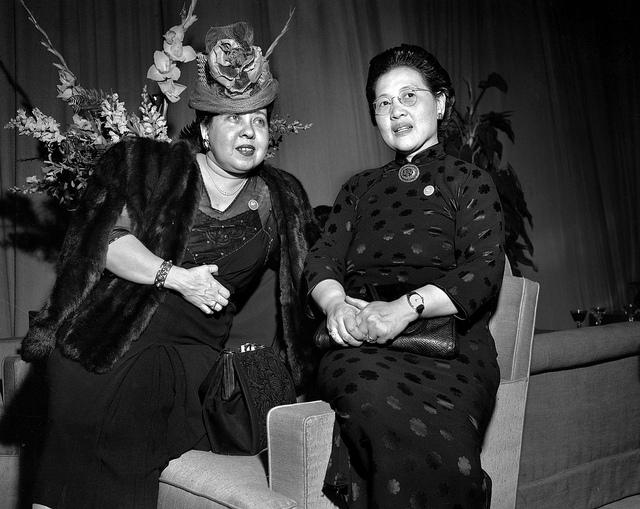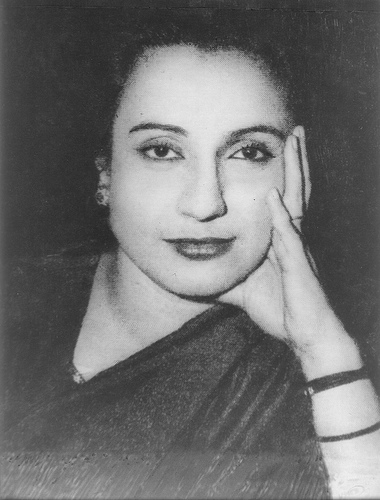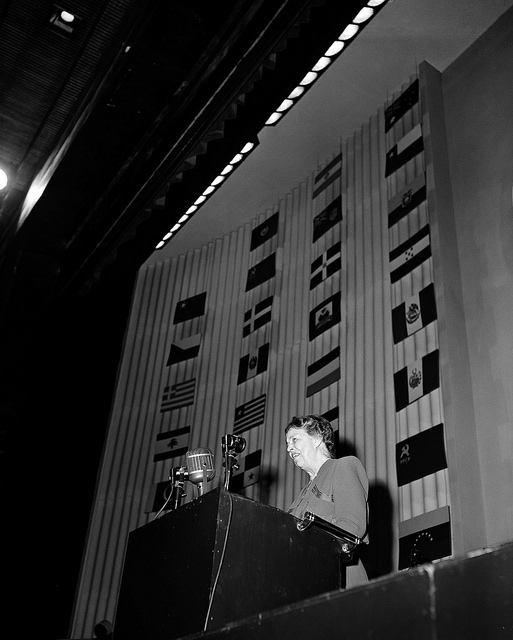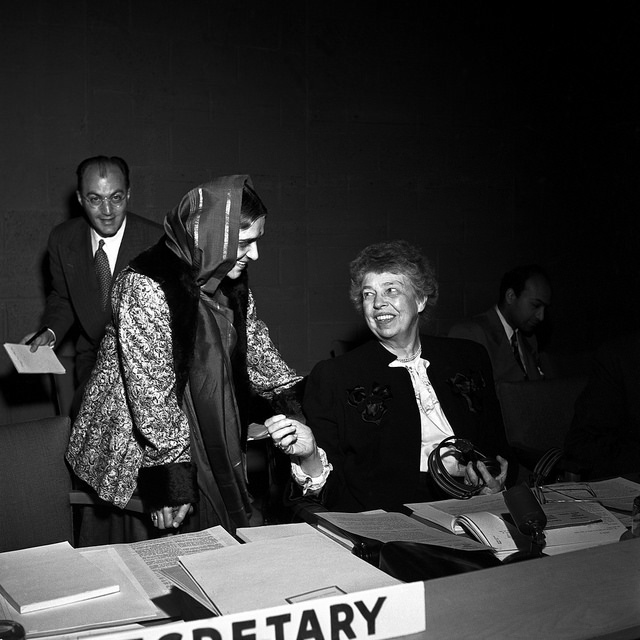Hannah Swirsky, Campaigns Officer at René Cassin, outlines why the 70th anniversary of the Universal Declaration of Human Rights is a time for celebration, but also for remembrance of the unsung role of women in the Declaration, and, realising their legacies today.
Celebration, because the Universal Declaration of Human Rights was the first expression of a global consensus that the rights of every human being were paramount and must be respected. But remembrance, too, because the Universal Declaration of Human Rights was a response to the horrors of the Holocaust – the Declaration’s preamble states “… disregard and contempt for human rights have resulted in barbarous acts which have outraged the conscience of mankind.”
Formalising human rights in a universal document for the first time, the Universal Declaration of Human Rights has since inspired numerous international conventions and treaties, regional instruments and domestic laws.
The Declaration Establishes Women’s Rights are Human Rights
 Minerva Bernardino (left) from the Dominican Republic ensured ‘men and women’ featured in the Declaration. Credit: UN Photo
Minerva Bernardino (left) from the Dominican Republic ensured ‘men and women’ featured in the Declaration. Credit: UN Photo
For me, one of the most important legacies of this landmark document is the notion that women’s rights are human rights.
Article 2 of the Universal Declaration of Human Rights applies all rights and freedoms equally to men and women and prohibits discrimination on the basis of sex. These freedoms and rights include equal pay for equal work, the right to health and the right to an education for all.
Non-western women played a crucial role, challenging the myth that western states were at the forefront of human rights.
This was thanks to the female delegates to the United Nations who successfully pushed for gender equality to be recognised in the document.
Well known is Eleanor Roosevelt, who was Chair of the United Nations Human Rights Commission and has been heralded as the ‘First Lady of the World’. But, it was also non-western women who played a crucial role, challenging the myth that western states were at the forefront of human rights.
In a new book entitled ‘Women and the Universal Declaration of Human Rights’, academic Rebecca Adami shines a light on the other, lesser known but no less important, trailblazing female delegates to the UN who were greatly involved in the drafting of the Declaration.
Indian delegate Hansa Mehta revised the phrase “All men are born free and equal” to “All human beings are born free and equal” in Article 1 of the Declaration.
Minerva Bernardino, a delegate from the Dominican Republic who led the Latin American feminist movement, was outspoken in ensuring both ‘men and women’ featured in the document. She was also a driving force behind the inclusion of women’s rights in the 1945 UN Charter and the UN Commission on the Status of Women 1946.
Indian delegate Hansa Mehta, champion of women’s rights in her home country, revised the phrase “All men are born free and equal” to “All human beings are born free and equal” in Article 1 of the Declaration – a symbolic move beyond the gendered language that reinforces a patriarchal system.
Begum Shaista Ikramullah from Pakistan fought for the inclusion of Article 16, on equal rights in marriage, which she saw as a way to combat child marriage and forced marriage
The work of these women “made it the universalizing document that it has remained”, Rebecca Adami told the UN Office of the High Commissioner on Human Rights
The Legacy of the Declaration Today
 Begum Shaista Ikramullah from Pakistan fought for the inclusion of Article 16, on equal rights in marriage Credit: Wikimedia Commons
Begum Shaista Ikramullah from Pakistan fought for the inclusion of Article 16, on equal rights in marriage Credit: Wikimedia Commons
The incorporation of women’s rights within the Universal Declaration is a notable legacy and paved the way for the UN Convention on the Elimination of Violence Against Women 1993. The Convention covers physical, sexual and psychological violence, within both the public and private sphere, and aims to hold UN member states accountable for failing to prevent such violence.
However, the sexual violence, harassment and discrimination that women continue to be subjected to reveal that we still have a long way to go in realising the legacy that the Universal Declaration sought to promote.
“The demand for equality between men and women, which was voiced in the drafting of the Universal Declaration of Human Rights, still rings true today”, states Veronica Birga, head of the UN Human Rights Office’s section on women’s human rights and gender.
Last year 50,000 women around the world were killed ‘at home’ by their partners or families.
United Nations Office on Drugs and Crime
As Eleanor Roosevelt famously remarked in 1958, human rights start “in small places, close to home. Unless they have meaning there, they have little meaning anywhere”.
 Eleanor Roosevelt addresses the United Nations General Assembly on 10 December, 1948 prior to the adoption of the Declaration of Human Rights, in Palais de Chaillot, Paris. Credit: UN Photo
Eleanor Roosevelt addresses the United Nations General Assembly on 10 December, 1948 prior to the adoption of the Declaration of Human Rights, in Palais de Chaillot, Paris. Credit: UN Photo
Yet, according to new data released by the United Nations Office on Drugs and Crime, the most dangerous place for a woman today is the home. It outlines how 58% – 50,000 – of women killed in the world last year die at the hands of their partners or families.
At a time when intolerance and nationalism are on the rise, we should remember what disregard and contempt for human rights can lead to, and celebrate the world’s enlightened riposte to tyranny. Our namesake, Monsieur René Cassin has been called ‘the father of the Universal Declaration‘ – and we will be marking this anniversary year with a series of events and activities.
As we celebrate the Universal Declaration, let’s remember the women behind it and vow to realise their legacy.






